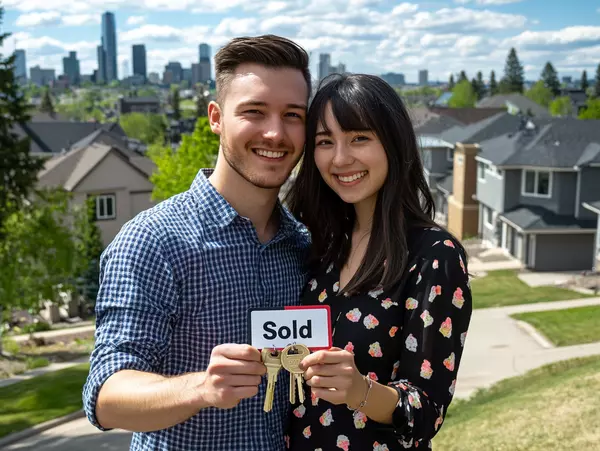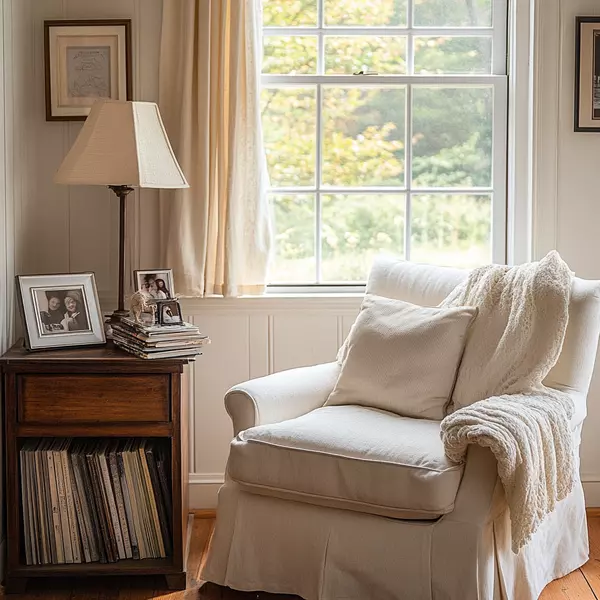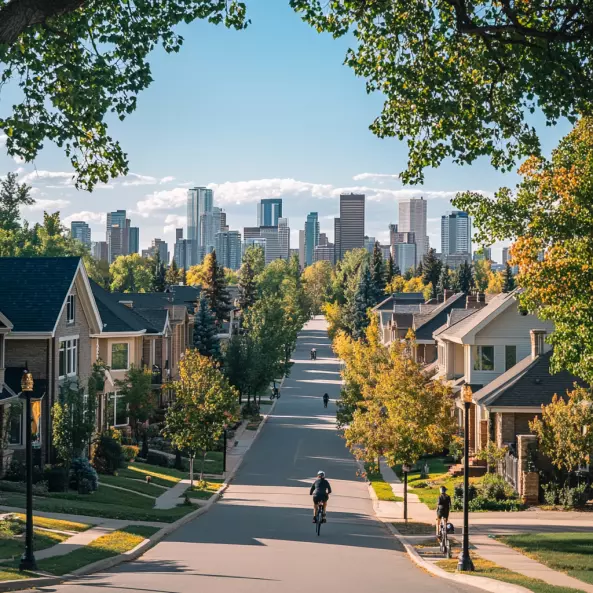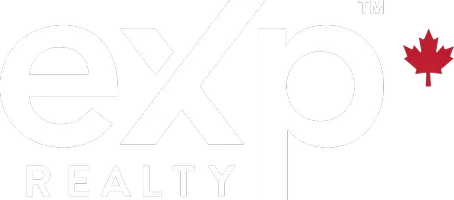

Everything You Need to Know About Closing Costs When Buying a Home in Edmonton
Introduction Buying your first home in Edmonton is an exciting milestone, especially for newcomers to Canada. But amidst all the excitement, one thing that often catches first-time homebuyers off guard is closing costs. In this guide, we’ll break down everything you need to know about closing costs in Alberta, helping you be fully prepared when it's time to sign on the dotted line. What Are Closing Costs? Simply put, closing costs are the fees and expenses you need to pay when finalizing the purchase of a home. These can range from legal fees to inspection costs, and they generally add up to between 3% and 5% of your home’s purchase price. Knowing what these costs are upfront will ensure you’re not caught off guard at the last minute. The Down Payment The down payment is the largest upfront cost when buying a home. In Alberta: Homes under $500,000 require a 5% down payment. For homes priced between $500,000 and $999,999, you'll pay 5% of the first $500,000 and 10% of the remaining amount. If the home costs $1 million or more, expect a 20% down payment. Saving for your down payment takes time and planning. Consider using a Tax-Free Savings Account (TFSA) to grow your savings tax-free. Looking for details on all down payment options? Mortgage Default Insurance If your down payment is less than 20%, you’ll need to pay for mortgage default insurance. This cost ranges between 2.8% and 4% of the mortgage amount and can be added to your mortgage. While it’s an added expense, it allows you to buy a home without having to save 20% upfront. Legal Fees In Alberta, you’ll need a lawyer to handle the legal paperwork of buying a home. Legal fees typically range between $500 to $1,500. It’s wise to shop around and find a lawyer who offers a good rate and experience with first-time homebuyers. Property Insurance Before you can finalize your purchase, your lender will require proof of property insurance. This typically costs between $500 and $1,500 annually, but you can often get a better deal by bundling home and auto insurance. Home Inspection Costs Though not mandatory, a home inspection is one of the best investments you can make when buying a home. For a typical home in Edmonton, expect to pay between $300 to $500. A home inspection can save you from future headaches by identifying potential issues before closing the deal. Property Appraisal Your lender might require a property appraisal to verify the home’s value. Appraisals generally cost between $300 to $500, but some lenders include this service as part of their mortgage package, so it’s worth asking. Title Insurance Title insurance protects you from potential legal disputes over property ownership. This is a one-time fee that usually costs around $350, but it offers long-term protection. Land Transfer Fees Unlike other provinces, Alberta doesn’t have a land transfer tax, but you will need to pay a small land transfer fee. This typically ranges between $200 and $1,000, depending on the home’s value. GST on New Homes If you’re buying a newly built home, GST applies at 5%. However, if your home is priced under $450,000, you could qualify for a partial rebate. This can significantly reduce your costs, so be sure to discuss this with your builder or realtor. Adjustment Costs At closing, you may need to reimburse the seller for any prepaid property taxes or utilities. These adjustment costs can range between $300 and $500, so it’s important to budget for them. Budgeting for Closing Costs It’s a good idea to budget conservatively for your closing costs. Plan for costs to be on the higher end of the 3% to 5% range, just to be safe. Also, ask your realtor or lawyer for a detailed estimate early in the process so you’re fully prepared. Conclusion Being prepared for closing costs is a critical part of buying a home in Edmonton. By understanding what to expect and planning ahead, you’ll avoid surprises and make your home-buying experience much smoother. As always, consult with your realtor, lawyer, and mortgage broker to get personalized advice based on your specific situation. FAQs 1. Can I roll closing costs into my mortgage?No, in Canada, closing costs must be paid upfront and cannot be added to your mortgage. 2. Are home inspections mandatory in Alberta?No, but they are highly recommended to identify any potential issues with the home. 3. Do first-time buyers in Alberta get any discounts on closing costs?There are no specific discounts for first-time buyers, but Alberta offers various programs to help offset the costs. 4. What happens if I don’t have enough saved for closing costs?If you don’t have enough saved for closing costs, your mortgage might not get approved, so it’s essential to budget carefully. 5. Can I negotiate closing costs with the seller?In some cases, yes. You may be able to negotiate for the seller to cover certain closing costs, but this depends on the market conditions and the agreement you reach.
Read More

Why You Should Never Underprice Your Home: A Comprehensive Guide to Pricing for Maximum Profit
Introduction: Why Pricing Your Home Right is Crucial Pricing your home isn’t just about slapping a number on it and hoping for the best. It’s one of the most critical decisions you’ll make in the selling process. Why? Because the price tag you set can either draw in serious buyers or scare them away. The right price helps you sell quickly and profitably, while underpricing could cost you tens of thousands of dollars. In this guide, we’ll explore why pricing too low is risky and how to ensure you get the best possible price for your home. The Importance of Proper Home Pricing Setting the correct price for your home is not about guesswork; it's a strategic decision. A well-priced home attracts more buyers, increases competition, and ensures that you sell it faster, maximizing your profit. On the other hand, a poorly priced home can sit on the market for months or lead to regret after the sale. Why Pricing Too Low Hurts Your Sale Financial Losses and Undervaluation Depending on the market at the time, when you underprice your home, you're essentially could be leaving money on the table. Whether you’re trying to attract more buyers with a lower price or simply misjudge your home’s market value, this strategy often backfires if you don't have a complete marketing strategy that guarantees maximum exposure to your home. Selling below market value means you miss out on potential profit that could make a significant difference in your financial future. Market Perception of a Low Price Think about it: It truly depends on the market but think about it, what do buyers assume when they see a low price tag? In many cases, if the market isn't a strong sellers market in Edmonton, a low price can raise red flags. Buyers may wonder, "What’s wrong with this home?" or assume that the seller is desperate. This perception can actually reduce buyer interest and weaken your negotiating position. If it is a strong sellers market, it is essential that there is a strategy of maximum exposure so that the entire market is aware of your home. Conducting a Comparative Market Analysis (CMA) What is a CMA and How Does It Work? A Comparative Market Analysis (CMA) is a critical tool used by real estate professionals to determine the market value of a home. This analysis involves comparing your home to similar properties that have recently sold in your area. Think of it as creating an "Apples to Apples" comparison. By looking at homes with similar features and amenities, you can better understand what buyers have most recently paid for a home like yours and give us some idea as to what home buyers in Edmonton are willing to pay. Analyzing Comparable Homes When conducting a CMA, you’ll want to focus on homes that have sold within the last 3-6 months depending on the current real estate market in Edmonton. These homes should be a similar style and in the same general location. They should have similar square footage, lot size, and number of bedrooms and bathrooms. This helps create an accurate picture of how your home should be priced. Adjusting for Differences Not every home will be an exact match to yours. Maybe your home has a larger lot or more recent renovations than comparable properties. Adjusting for these differences—like adding value for a newly remodeled kitchen—can help you avoid underpricing your home. Getting Professional Assistance The Realtor’s Role in Pricing Real estate agents have access to comprehensive market data and tools that help them provide an unbiased, accurate estimate of your home’s value. It is imperative that you select a Realtor who brings an objective eye and a wealth of experience, ensuring you set the right price for your home. Benefits of a Professional Appraisal For homes with unique features or those in areas with few comparable sales, hiring a professional appraiser can offer additional assurance that you’re pricing your home correctly. An appraiser’s detailed analysis goes beyond what a CMA can provide, helping you understand your home’s true market value. Factors that Influence Your Home’s Value Location and Market Conditions Location is one of the biggest factors that determine your home’s value. Whether you live in a bustling urban center or a quiet suburban neighborhood, the area’s desirability, school districts, and local amenities all play a role in how buyers perceive your home. It is even important to understand how what your home backs on could increase or decrease the value of your home. Similarly, the current market conditions—whether it’s a buyer’s or seller’s market—impact how much buyers are willing to pay. Condition and Upgrades Most of today's home buyers in Edmonton love move-in-ready homes. If your home is well-maintained or includes modern upgrades like energy-efficient windows or a newly renovated kitchen, this can significantly increase its value. However, outdated or poorly maintained homes will often struggle to fetch top dollar. Be careful though, there are many upgrades that you many nener get your money back, The Power of Unique Features Does your home have a one-of-a-kind feature, like a stunning view or a custom-built deck? Highlighting these elements in your pricing strategy can help justify a higher price, ensuring you don’t undervalue the unique aspects of your home. It is also important to note, some of these features may not bring much value dollar wise, but they will help the buyer choose your home vs, the competition. Avoiding Common Pricing Mistakes Online Valuation Tools and Their Limitations Online home valuation tools, like Zillow’s Zestimate, can give you a ballpark figure for your home’s value, but they’re not RARELY accurate. These tools often miss out on critical factors like recent renovations, unique features, or the current condition of your home. Don’t rely solely on these tools when setting your price. Pricing Psychology and Buyer Perception Buyers typically search for homes within specific price brackets, like $250,000 to $300,000. Pricing your home at $299,000 instead of $300,000 can make it impossible for the buyers to know your home is on the market if they are searching in the next price bracket of 4300,000 TO $350,000. This probably is one of the biggest mistakes that home sellers and their real estate sale people make. Leaving Room for Negotiation While you don’t want to price too high, leaving a little room for negotiation can also be a massive error depending on the market. If the market is hot, leaving too much room for negotiations can have a buyer believe that the seller is not going to be interested in negotiating and so they write an offer on another home. Setting your price slightly (Less than 2%) above your bottom line gives you the flexibility to entertain offers without compromising your financial goals. Conclusion Pricing your home is both an art and a science. It’s about understanding the market, knowing your home’s value, having an aggressive marketing strategy, and working with professionals who can help you navigate the complexities of the selling process. By avoiding common pricing mistakes and leveraging expert advice with advanced home marketing techniques, you can confidently set the right price for your home in the Edmonton region and maximize your return. FAQs How does a CMA help with pricing? A CMA compares your home to similar properties that have recently sold, helping you determine a fair market value. Can I rely on online valuation tools? Online tools are a good starting point, but they often miss important details like upgrades and local market conditions. Why shouldn’t I price my home too low? Underpricing can lead to financial loss and may attract buyers who think something is wrong with the home. How do unique features affect my home’s value? Unique features, like a great view or high-end finishes, can justify a higher asking price. When should I get a professional appraisal? A professional appraisal is helpful when your home has unique features or there are few comparable properties in your area.
Read More

Understanding the Home Buying Process in Edmonton: A Beginner’s Guide
Buying your first home in Edmonton? Exciting, right? But also a bit daunting. Don’t worry, though! We’re here to walk you through each step of the home-buying process. By the end of this guide, you’ll be equipped with the knowledge to make informed decisions and feel confident about your journey into homeownership. Assess Your Readiness and Finances Checking Your Credit Score Your credit score is like your financial report card. It plays a major role in whether you’ll be approved for a mortgage and the kind of interest rates you’ll get. If your score is below 650, don’t fret—there are ways to improve it before you start house hunting. Evaluating Your Debt-to-Income Ratio Lenders typically prefer a debt-to-income ratio of 43% or lower. This means your monthly debts, including the potential mortgage payment, should not exceed 43% of your monthly income. Determining Your Budget A good rule of thumb is to keep your housing expenses within 30% of your gross monthly income. This helps ensure that you’re not overextending yourself financially. Saving for a Down Payment Looking for details on all downpayment options? In Canada, the minimum down payment is 5% of the home’s purchase price. But if you can save more, you’ll reduce your mortgage insurance premiums and overall interest payments—so it’s worth considering. Did you know that you can use your RRSP funds? Here is a full explaination. Get Pre-Approved for a Mortgage Shopping Around for Lenders Different lenders offer different rates and terms, so it pays to shop around. You’ll want to compare at least three options before making a decision. Gathering Necessary Documents You’ll need proof of income, employment verification, and details about your assets and debts. Having these documents ready will make the pre-approval process smoother. Understanding Your Borrowing Capacity Pre-approval gives you a clear idea of how much you can afford to spend. It also shows sellers that you’re a serious buyer, which can be a big advantage in a competitive market. Choose the Right Property Determining Your Needs and Wants Start by making a list of what you absolutely need in a home (like the number of bedrooms) and what would be nice to have (like a big backyard). This will help narrow your search. Researching Edmonton Neighborhoods Think about what’s important to you—proximity to work, schools, amenities, or future development plans. Each neighborhood in Edmonton has its own unique vibe, so take the time to find one that fits your lifestyle. Exploring Different Property Types Edmonton offers a variety of housing options, from single-family homes to duplexes, townhouses, and condos. Each comes with its own set of pros and cons, so consider what type of property best suits your needs. Utilizing Online Resources Websites like Realtor.ca provide up-to-date listings of available properties in Edmonton. These resources are great for getting a sense of what’s on the market and what fits within your budget. Work with a Real Estate Agent Choosing an Experienced Agent An experienced agent familiar with Edmonton’s market can make all the difference. They’ll guide you through the process, help you avoid common pitfalls, and negotiate on your behalf. Communicating Your Goals and Budget Be clear about what you’re looking for and what your budget is. The more your agent knows about your needs, the better they can serve you. Leveraging Their Expertise A good agent knows the ins and outs of the market and can provide valuable insights on property values, neighborhood trends, and negotiation strategies. Tour Potential Homes Creating a Checklist When touring homes, use a checklist to note important features like the condition of the home, the layout, and any potential renovation needs. This will help you compare properties more effectively. Considering the Neighborhood Don’t just focus on the house—pay attention to the neighborhood as well. Check out the local amenities, transportation options, and overall atmosphere. Asking the Right Questions Ask about the age of the home, any recent renovations, and any potential issues like a leaky roof or outdated plumbing. This information can help you avoid costly surprises later on. Make an Offer and Negotiate Determining a Fair Price Your real estate agent can help you analyze comparable sales in the area to come up with a competitive offer. You don’t want to overpay, but you also don’t want to lose out on your dream home by underbidding. Including Conditions in Your Offer Common conditions include financing approval, a satisfactory home inspection, and the review of condo documents (if applicable). These conditions protect you if something goes wrong. Preparing for Counteroffers It’s common for sellers to counter your initial offer. Be prepared to negotiate and work with your agent to ensure you get the best possible deal. Conduct Due Diligence Scheduling a Home Inspection A home inspection is crucial. It can uncover potential issues that could affect your decision to buy or your negotiating position. Reviewing Condo Documents (if applicable) If you’re buying a condo, reviewing the condo corporation’s financial statements, bylaws, and reserve fund study is essential. These documents give you insight into the health of the condo community and any potential future costs. Obtaining a Property Appraisal An appraisal ensures that the price you’re paying aligns with the home’s actual value. This is also a requirement for most mortgages. Close the Deal Finalizing Your Mortgage Once you’ve settled on a home, you’ll need to finalize your mortgage. This might involve providing additional documentation to your lender. Arranging for Home Insurance Home insurance is usually required by mortgage lenders. It protects your investment in case of damage or loss. Hiring a Real Estate Lawyer A real estate lawyer will review all the legal documents and handle the transfer of property ownership. They’re essential for ensuring everything is in order. Conducting a Final Walk-Through Before closing, do a final walk-through to ensure the property’s condition hasn’t changed since your last visit. This is your last chance to spot any issues. Signing Closing Documents Finally, you’ll review and sign all the necessary paperwork to complete the purchase. Once this is done, you’ll get the keys to your new home! Conclusion Buying your first home in Edmonton is an exciting journey, and with the right guidance, it doesn’t have to be overwhelming. By following these steps and working with experienced professionals, you’ll be well on your way to becoming a proud homeowner. FAQs What is the minimum credit score needed for a mortgage in Edmonton? Typically, lenders prefer a credit score of 650 or higher. However, some lenders may work with lower scores depending on other financial factors. How long does it take to close on a home in Edmonton? The closing process usually takes between 30 to 60 days, depending on various factors, including the lender's processing time and any conditions in the purchase agreement. What should I look for during a home inspection? Key areas include the roof, foundation, plumbing, electrical systems, and overall structural integrity. An inspector can identify issues that may require attention. Can I back out of a deal if the home inspection reveals issues? Yes, if your offer included a home inspection condition, you can negotiate repairs or withdraw your offer based on the findings.
Read More

Top Amenities to Look for in a Neighborhood for First-Time Homebuyers in Edmonton
Buying your first home is a monumental step, and choosing the right neighborhood can make all the difference in your long-term happiness and investment. If you're a first-time homebuyer in Edmonton, Alberta, this guide will walk you through the top amenities to look for in a neighborhood to ensure you make a decision you'll love for years to come. Why Amenities Matter for First-Time Homebuyers When purchasing your first home, it's easy to get caught up in the excitement of house hunting and overlook the importance of the surrounding neighborhood. However, the amenities available in your chosen area can significantly impact your quality of life, convenience, and even the value of your property over time. Let's dive into the key amenities that should be on your radar. Shopping and Entertainment Options Proximity to Retail Centers Having shopping centers close to home is not just about convenience—it's about lifestyle. Whether you need to grab a last-minute gift or do your weekly grocery shopping, being near a variety of retail options can save you time and stress. Dining and Entertainment Venues A neighborhood with a diverse selection of restaurants, cafes, and entertainment options like movie theaters or bowling alleys adds vibrancy to your daily life. It also provides you with great places to socialize and relax without needing to travel far. Grocery Stores and Daily Essentials Access to grocery stores, pharmacies, and other daily essentials is crucial. Look for neighborhoods that offer a variety of options so you're never far from what you need. Healthcare Facilities Importance of Nearby Medical Centers Health should always be a priority, and living near hospitals or medical centers can provide peace of mind. This is especially important if you have children, elderly family members, or chronic health conditions. Accessibility to Pharmacies Having a pharmacy nearby ensures you can quickly fill prescriptions or get over-the-counter medications. This convenience is invaluable during emergencies. Urgent Care and Emergency Services In case of a medical emergency, proximity to urgent care centers or hospitals can be life-saving. Ensure that your neighborhood has easy access to these facilities. Schools and Educational Opportunities Finding Quality Schools For families or those planning to start one, being close to good schools is non-negotiable. Edmonton has many neighborhoods with top-rated schools, so prioritize these areas if education is important to you. Daycares and Preschools For younger children, access to quality daycares and preschools is just as crucial. Consider neighborhoods that offer these services nearby to simplify your daily routine. Future Educational Developments In newer or developing neighborhoods, future plans for schools can add significant value to your home. These areas often experience appreciation as the community grows and amenities improve. Transportation and Commuter Access Public Transit Options Living in a neighborhood with reliable public transit can save you both time and money. Whether you commute daily or just need an occasional ride, proximity to bus stops, LRT stations, or major transit routes is a huge plus. Accessibility to Major Roads and Highways If you drive, easy access to major roads and highways is essential. It can make your commute shorter and less stressful, giving you more time to enjoy life outside of work. Walkability and Bike Paths For those who prefer walking or biking, check the neighborhood's walkability score and availability of bike paths. These factors contribute to a healthier lifestyle and reduce your carbon footprint. Recreational Amenities Sports Facilities and Fitness Centers Whether you're an athlete or just enjoy staying active, having sports facilities or fitness centers nearby can enhance your lifestyle. Look for neighborhoods that offer these amenities to help you stay fit and social. Leisure Centers and Community Hubs Leisure centers provide a range of activities from swimming to community classes, making them great for families and individuals alike. Community hubs also offer a place to meet neighbors and participate in local events. Year-Round Recreational Opportunities Edmonton's climate allows for various recreational activities throughout the year. From skating rinks in winter to outdoor pools in summer, choose a neighborhood that offers year-round fun. Parks and Green Spaces Importance of Outdoor Spaces Access to parks and green spaces is not just a luxury—it's a necessity for a balanced life. These areas provide a place to relax, exercise, and enjoy nature right in your neighborhood. Playgrounds and Family-Friendly Areas For families with children, nearby playgrounds and family-friendly parks are a must. These spaces offer a safe environment for kids to play and parents to socialize. Trails, Walking Paths, and Dog Parks If you enjoy outdoor activities, look for neighborhoods with walking trails, bike paths, and dog parks. These amenities make it easy to stay active and connect with nature. Community Services Libraries and Learning Centers A good library nearby can be a valuable resource for both adults and children. Whether you're borrowing books, attending workshops, or using study spaces, libraries enhance the intellectual and cultural fabric of a neighborhood. Community Centers and Social Programs Community centers offer social programs, fitness classes, and event spaces, fostering a sense of belonging and providing opportunities to meet your neighbors. Local Government Facilities Proximity to government services like police and fire stations can add a layer of security and convenience, ensuring you have quick access to essential services when needed. Affordability Balancing Budget and Amenities Finding a neighborhood that offers a good mix of affordability and amenities is key for first-time homebuyers. Edmonton has a variety of areas where you can get the best of both worlds, ensuring you stay within your budget without sacrificing convenience. Comparing Different Neighborhoods Take the time to compare neighborhoods based on both price and available amenities. This will help you find the best value for your money while ensuring a high quality of life. Finding Value Without Compromise It's possible to find an affordable neighborhood that still meets your needs. Work with a real estate professional to identify areas where you can get the most bang for your buck. Safety Crime Rates and Neighborhood Security Safety is often the top priority for homebuyers. Research crime rates and consider neighborhoods with strong community watch programs or other security measures. Family-Oriented Neighborhoods Look for neighborhoods known for their family-friendly atmosphere, where safety and community are top priorities. These areas often have lower crime rates and are well-suited for raising children. Importance of Community Vigilance A vigilant community is a safe community. Engage with neighbors and participate in local programs to contribute to the overall safety of your neighborhood. Future Development Potential Investing in Growth Areas Neighborhoods with future development potential can offer great investment opportunities. Look for areas with planned infrastructure improvements or upcoming commercial developments. Understanding Zoning and Planned Developments Understanding the zoning laws and planned developments in an area can give you insight into its future growth. This knowledge can help you make a more informed investment decision. Long-Term Value Appreciation Investing in a neighborhood with good future potential can lead to significant value appreciation over time. Work with a real estate agent to identify these hidden gems. Proximity to Work and Daily Commute Reducing Commute Time A shorter commute means more time for the things you love. Consider neighborhoods that offer easy access to your workplace or major employment hubs in Edmonton. Work-Life Balance Considerations A neighborhood that supports a healthy work-life balance is invaluable. Whether it's proximity to work, schools, or recreational amenities, choose an area that aligns with your lifestyle. Choosing the Right Location Based on Employment Hubs Edmonton has several key employment hubs, and living near one can reduce your daily commute and increase your quality of life. Research areas close to your workplace to find the best options. Cultural and Social Amenities Access to Arts and Culture Living in a neighborhood with rich cultural amenities, such as museums, galleries, and theaters, adds depth to your lifestyle. These areas often host events and festivals that bring the community together. Community Events and Festivals Edmonton is known for its vibrant festivals and community events. Choose a neighborhood that actively participates in these activities to enjoy a dynamic social life. Diversity and Inclusion in the Community A diverse and inclusive neighborhood fosters a welcoming atmosphere. Consider areas known for their cultural diversity and community spirit. Environmental Considerations Eco-Friendly Neighborhoods If sustainability is important to you, look for neighborhoods with green initiatives, such as recycling programs, community gardens, or energy-efficient homes. Access to Recycling and Sustainability Programs Living in an environmentally conscious neighborhood can make it easier to reduce your carbon footprint. Consider areas with robust recycling programs and sustainability initiatives. Living in Harmony with Nature Some neighborhoods in Edmonton are designed to integrate with natural surroundings, offering residents a peaceful, eco-friendly lifestyle. These areas often have green spaces, low-impact developments, and conservation efforts in place. Conclusion Choosing the right neighborhood is just as important as choosing the right home. By prioritizing the amenities that matter most to you—whether it's proximity to schools, access to parks, or affordability—you can find a community that supports your lifestyle and long-term goals. Remember to work with a knowledgeable real estate agent who can guide you through the process and help you find the perfect fit. FAQs What should first-time homebuyers prioritize in a neighborhood? First-time homebuyers should prioritize amenities that align with their lifestyle needs, such as proximity to work, schools, and recreational facilities, as well as safety and affordability. How do I find the safest neighborhoods in Edmonton? Research crime rates, visit the neighborhood at different times of day, and talk to locals. A real estate agent with local knowledge can also provide valuable insights. Here is a link to the Edmonton Crime Map. Are there affordable neighborhoods in Edmonton with good amenities? Yes, Edmonton offers a range of neighborhoods that are both affordable and rich in amenities. Work with a real estate agent to find the best options based on your budget. How important is proximity to schools for first-time homebuyers? Proximity to quality schools is crucial, especially for families or those planning to have children. It can also enhance the resale value of your home. Can a real estate agent help me find the right neighborhood? Absolutely! A real estate agent can provide expert advice on different neighborhoods, help you prioritize amenities, and guide you through the buying process.
Read More
Categories
- All Blogs (22)
- downsizing (2)
- Eco-friendly Homes (1)
- Edmonton Bylaws (2)
- Events & Community News (4)
- First Time Home Buyer (4)
- Gardening & Landscaping (1)
- Home Buying Tips (14)
- Home Insurance (2)
- Home Selling Tips (6)
- How to (9)
- increase home value (8)
- Interior Design (1)
- Local Market Trends (8)
- market Influences (11)
- Market Update (9)
- Migration (2)
- Mortgage Info (2)
- Moving & Relocation (8)
- Neighborhood Profiles (4)
- Real Estate FAQs (15)
- Real Estate Investment (1)
- Real Estate Laws & Regulations (2)
- Technology in Real Estate (2)
Recent Posts










